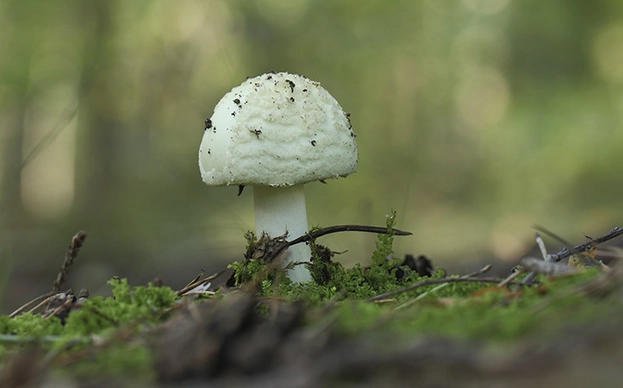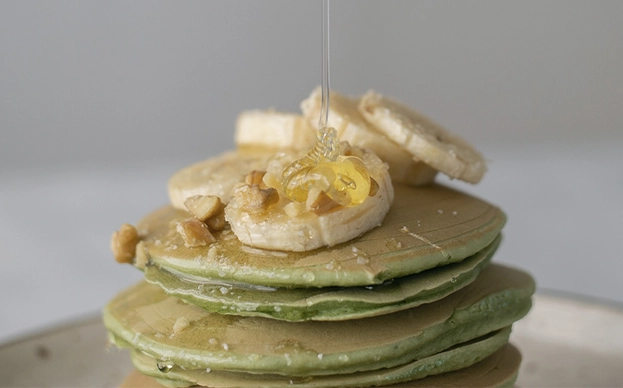
In 1981, the actress Lola Herrera and her ex-husband, the actor Daniel Dicenta, starred in 'Función de noche', a film somewhere between documentary and fiction in which they analyse their relationship and bare all their secrets in front of the camera. At one point she drops a bombshell during a very real conversation and confesses that she has never had an orgasm with him — she has faked them all. Even the most liberal viewers were shocked. "If you didn't have an orgasm, you were frigid. It can't have been the man's fault: there's no way he wasn't good in bed. It must have been the woman's fault," she explained to journalist Manuel Jabois in a recent interview in El País. "Only by knowing the truth, you can change things," she says So here we are, to address the many myths and taboos that still surround female sexuality: virginity, sex during menstruation or the menopause, our supposedly lower sex drive. Untruths passed down from childhood that influence sexuality in adulthood.
The hymen remains intact until the first penetration.
First of all, as sexologist Laura Morán explains, the hymen is not the "little cloth" that we've been told about, but "a fold of the vaginal mucous membrane" that protects the vagina. When menstruation begins, the body changes from being a physical barrier to a chemical one. In other words, from the first menstrual period onwards, the hymen naturally deteriorates and loses thickness, and what protects the vagina from this moment onwards is its pH and vaginal flora. In many cases, by the time a woman experiences her first intercourse, the hymen is already partially ruptured.
So no, the hymen does not remain intact until the first penetration, it may break before or not at all during the first experience of intercourse. "The hymen is elastic," explain Norwegian doctors Nina Brochmann and Ellen Stokken Dahl in their essay 'The Book of the Vagina', "it is crescent or ring-shaped and can expand to allow the penis or a tampon to enter without any damage. So the first time a woman has sex, there doesn't necessarily have to be any pain or bleeding. Many women actually keep their hymen intact after their first sexual experience. As you can see, not everything is as we've been told.
Women masturbate less than men
This statement is the conclusion drawn from all the studies and surveys conducted on the subject. Women are masturbating more and more, but still less than men. However, is it true that they do it less or are they ashamed to admit it? And if indeed all of us, both men and women, are sexual beings from birth to death, why are women less likely to opt for erotic self-stimulation? Is it because of education, prejudices, fears, religious ideas, etc.? Some people still think that solo masturbation can damage a partner's ego. What's more, until sex toys became commonplace, female masturbation, unlike male masturbation, was completely silenced.
You can’t have sex on your period
Who says? You can do absolutely anything during your period: run, dance, make mayonnaise, shower (very important) and, of course, have sex. A painful period or not feeling too well may take away your desire to have sex, it's true, but remember that an orgasm has a pain-relieving effect and will help you feel better. In addition, many women report that sex during menstruation is more pleasurable because the vagina is much more sensitive. Are you worried about stains? Place a towel underneath, and you're good to go.
Women only enjoy penetration
The fact that we assume that complete sexual intercourse must include penetration and that everything else (caresses, oral or manual stimulation, the use of sex toys...) is just foreplay has a name: coitocentrism. But is it true that women only enjoy penetration? Far from it, in fact, the vast majority need clitoral stimulation to reach orgasm. As we have told you before, the clitoris has 8,000 nerve endings, twice as many as the glans penis, and it is an organ that only exists to provide pleasure.. Not forgetting, of course, other important erogenous zones such as the nipples or the perineum.
Sexual pleasure decreases after menopause
Neither desire nor the ability to experience pleasure diminishes with age. The onset of menopause produces certain changes in a woman's body, but none that prevent her from reaching orgasm. This belief is linked to our conception of sexuality as a reproductive instinct and to the tyranny of beauty as something linked to youth. A menopausal sex life, free of contraception and the chance of getting pregnant, can be fantastic. And let us also recall, going back to the previous point, that sex is much more than just penetration.
Women have less sexual desire
Once again, this belief has spread due to ignorance based on bad education. It is not dignified for a woman to show her sexual desire, therefore she does not have it (or has less of it). Personal circumstances, work, physical and emotional state... desire depends on many factors, factors which, yes, also affect male desire. Studies on the subject conclude that women respond to the presence of an erotic stimulus just as fast as men do.
What’s more, orgasm works as a powerful incentive for women who want to get their sex lives back on track. So not only do you have to cherish your desire, seek it out, but you also have to expect satisfying sex to experience it. If you have to fake orgasms, you may not be overflowing with desire.












